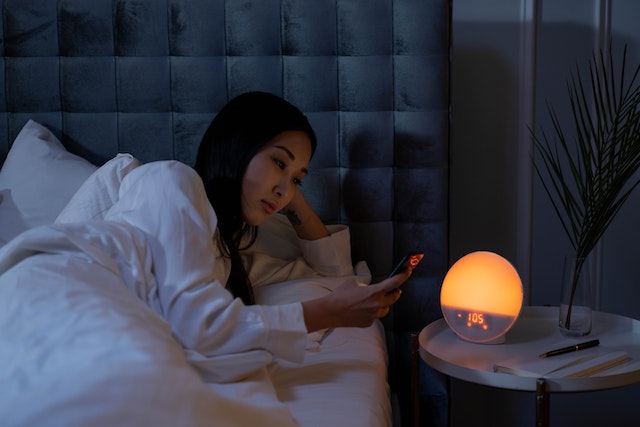There is no escaping the pervasiveness of ever-evolving technological innovations. All of them, no matter how simple or complex, have the potential to alter our relationships with each other and with ourselves.
All aspects of human life, from communication to recreation, benefit from these developments. They all have in common how they change our perspective on the world by simplifying our lives or increasing our sense of what is possible.

One way in which technology has helped people get a better night’s rest is by making it easier for them to fall asleep at a reasonable hour. People used to rely on tried-and-true methods like lavender oil and counting sheep to help them nod off before the advent of modern sleep aids.
People could find far better solutions for tracking their sleep patterns and avoiding insomnia with the assistance of modern technology. Sleep deprivation has been linked to diminished mental and physical function, making it challenging to keep up with daily obligations. In this article, we shall look at how technology has changed sleep habits for the better.
Sleep Monitoring
Sleep apps keep track of a person’s sleeping habits throughout a single night. It helps maintain a record of when a person goes to sleep. It could also track how you sleep and other data about your sleep cycles that they might not have observed earlier.
The app could use this data to determine the best times they should wake up. Having this information empowers users to alter their routines accordingly.
Some sleep technology developed in recent years helps manage sleep and gives users quality time in bed for maximum relaxation. You could even use your pillow to accomplish things that aid in sleep.
Such a pillow is outfitted to play a variety of soothing noises. They could produce sounds like the chirping of insects, the rumbling of thunder, or any sounds the user selects. The device can play the noises you have stored in its memory whenever you want them. They do this without irritating anyone around them.
Turnaround
Researchers at the Delft University of Technology devised an additional method to aid insomniacs. Patients with sleep apnea, a medical disorder in which you repeatedly stop breathing for several seconds during sleep, will benefit from their new equipment.
Sleep apnea occurs when your tongue falls against the back of your throat. It restricts the airway and rouses you from sleep. Patients with apnea often report feeling exhausted the next day. However, this is only possible if they regularly sleep on their back.
You could find a little gadget worn as a belt around the chest that gently vibrates to warn you not to sleep on your back and to turn around if you roll over.
Clinical trials have shown the efficacy of these wearable devices, and doctors in France, Germany, and the Netherlands regularly recommend them to their patients.
Controlling Interior Brightness
People’s ability to fall asleep can be disrupted when they are exposed to bright lights, mainly as bedtime draws nearer. This happens because strong lights postpone tiredness.
Intelligent light bulbs may be programmed to emit calming (and sleep-friendly) ambient hues when it is time to switch to wind-down mode. This helps create an atmosphere conducive to getting perfect sleep quality.
These lights are also programmed to awaken sleepers in the mornings with dim lighting and energize the household with brighter hues of white light even as the time comes to get going.
Control the Bedroom Temperatures
Making the room too cold or hot is a surefire to keep someone awake all night. In addition, a smart thermostat allows homeowners to set the ideal temperature for a good night’s sleep every night of the year.
You could also use these technology devices to remotely access the home’s cooling and heating system, cut costs by decreasing energy use, and do much more.
Conclusion
Evidence from anecdotal and scientific sources suggests that using electronic devices like laptops, cellphones, and tablets in the hours before bed can disrupt sleep quality. It may be tempting to banish all electronic gadgets from the bedroom to get a nap.
However, consumers should not do so right away because technologies can be helpful for individuals attempting to doze off. Some recent developments discussed in the article are a few of how technology can assist people in falling asleep for healthy living.
To read more on topics like this, check out the Lifestyle category
Leave a Reply